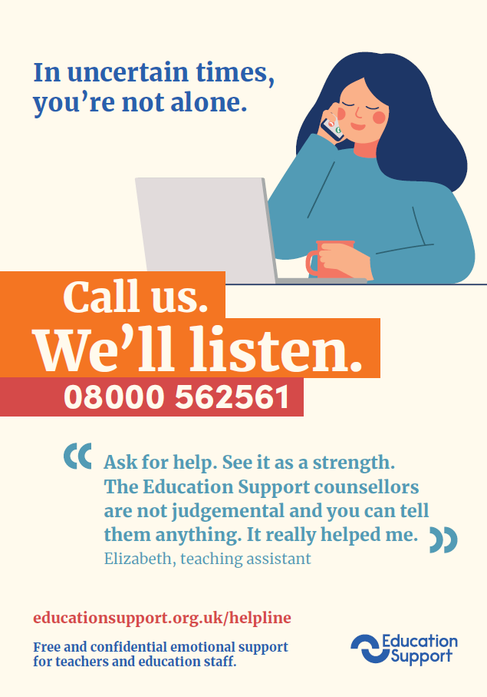Mental Health & well-being
A central place to look for resources to support children and families. These are not Abbey school resources, so please exercise some caution and judgement about their use.
Resources to support children in school
Barnardo's Black Asian and Minority Ethnic COVID helpline
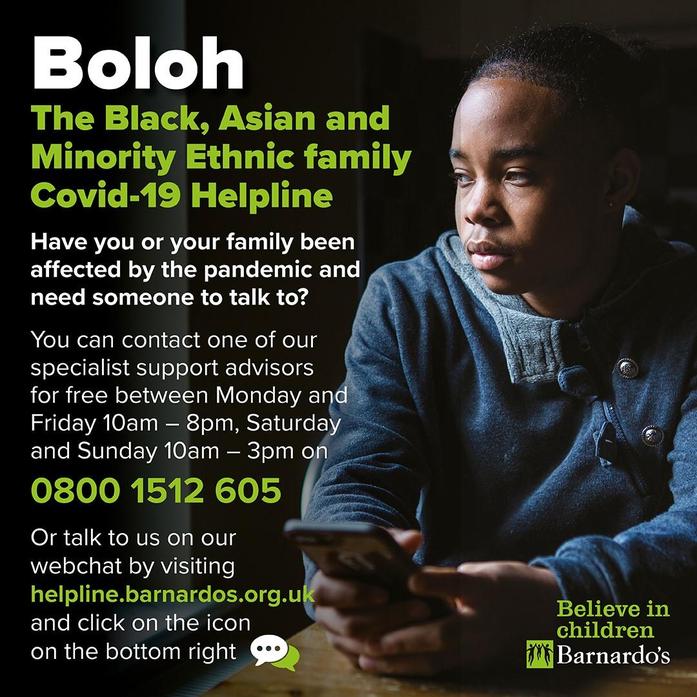
Online Support - A list of websites and apps that are helpful for managing mental health
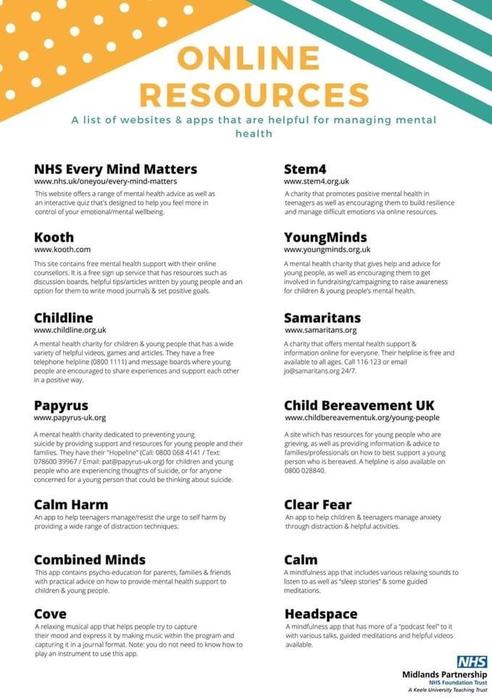
Sandwell Wellbeing Booklet
Sandwell SHAPE’s 5 Ways to Wellbeing Booklet has been co-designed with young people, educational psychologists and advisory teachers for PSHE to help young people focus on their mental health and wellbeing. It focuses on the five ways to wellbeing and gives activity ideas for children and young people to do to help them to be calm, relax and refocus their mind.
Supporting mental health and wellbeing - quick tips
-
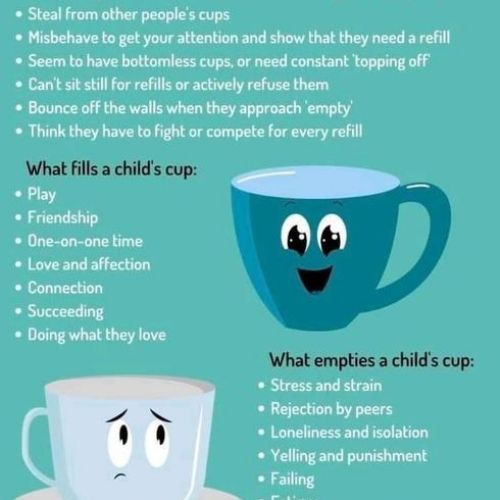
e6907055c3bc4645ae9cdb045ad634cc1x1
-
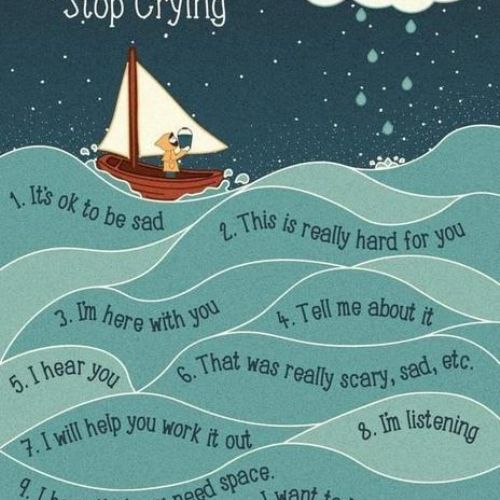
846802e95d0243bca80db988ce8f57751x1
-
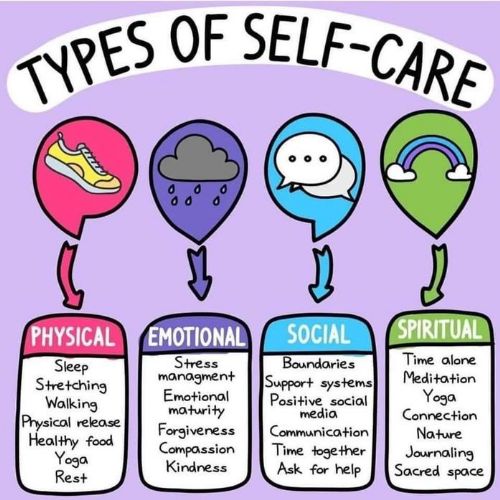
434112b6611447b682a49dc01f291e141x1
-
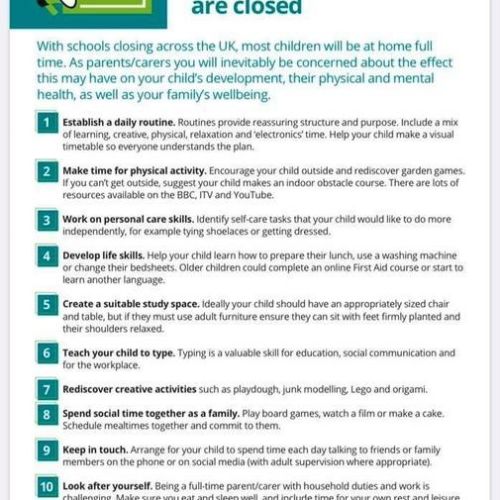
878f79f38d014186901c94ea2c7a35cc1x1
-
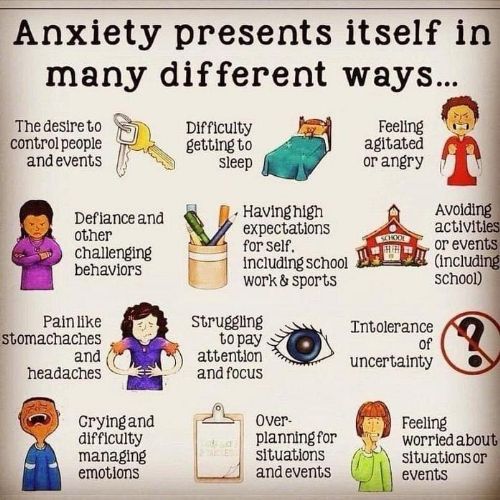
351f00115ab64f66b09028f61601ba381x1
-
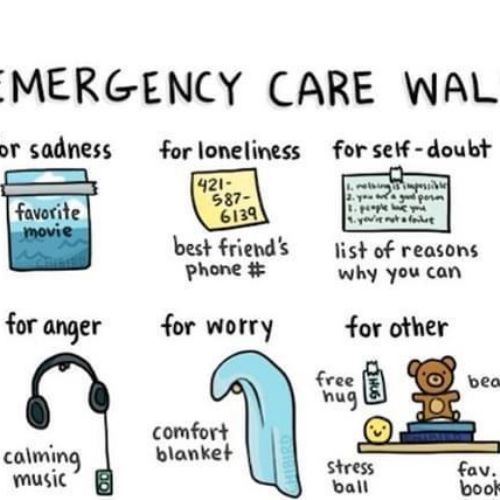
73bd1e115f634385b98e58a42973f2fc1x1
-
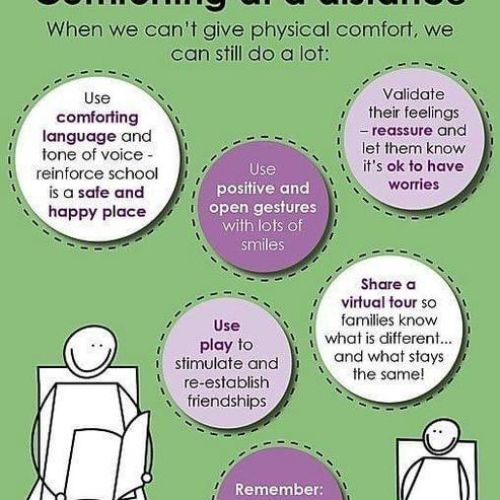
5f474ffbaf2a488f9c7e7fc299bb4ce91x1
-
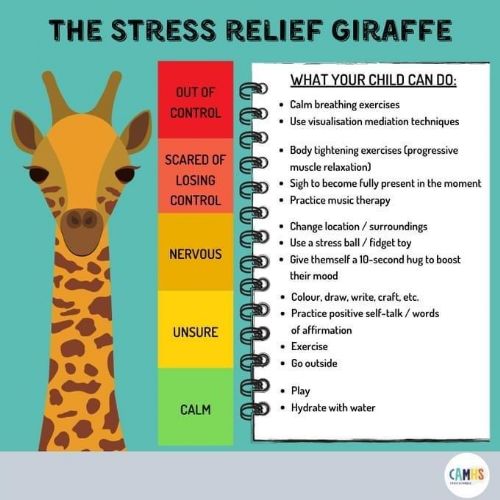
2ddcd8e86ee64506986d0935b6f047411x1
-
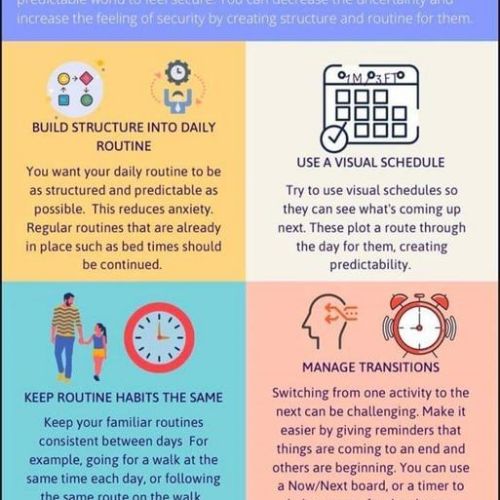
0a34b73fe1cf4d51b9d289fd2cf36a2d1x1
Information regarding Sanctuary Cafes and Suicide Prevention Events.
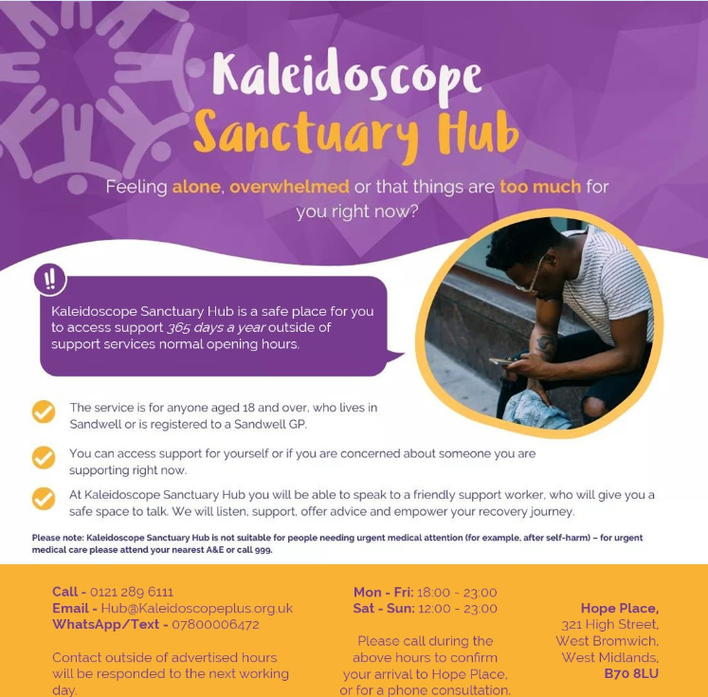
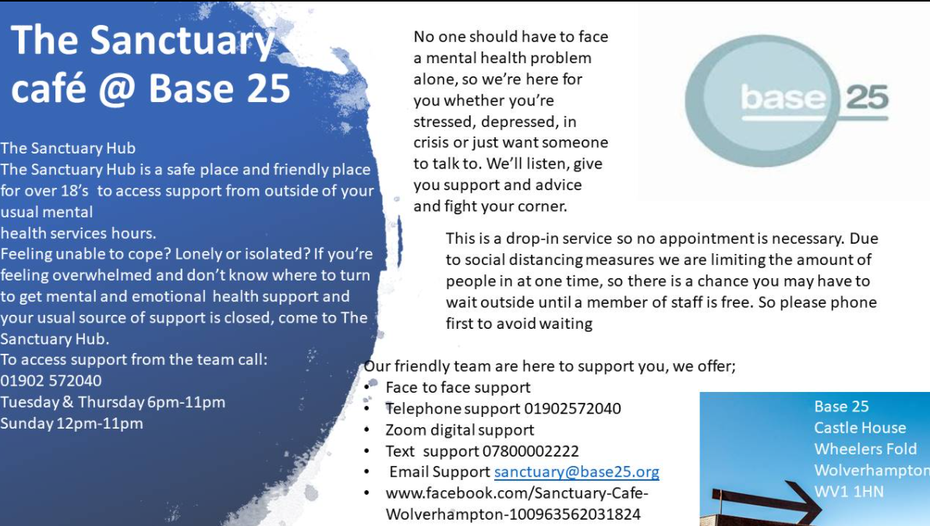
Information on the Sanctuary Hub
-
Nip in the Bud
Learning about Children’s Mental Health through Film Nip in the Bud works with mental health professionals to produce short films and fact sheets to help parents, primary school teachers and others caring for and working with children to recognise potential mental health conditions. The goal is to increase the prospects of early intervention and to reduce the risks of those conditions becoming more serious in later years. Our films cover Anxiety Disorders, Attention Deficit Hyperactivity Disorder (ADHD), Conduct Disorder, Depression, Obsessive Compulsive Disorder (OCD), Post-Traumatic Stress Disorder (PTSD) and Autism Spectrum Condition (ASC). We will continue to add more films.
-
Family Information Service - FIS
Get in touch with the Family Information Service Email us: family_information@sandwell.gov.uk Call us: 0121 569 4914
-
Storm Break
Happy, healthy humans; When the storm rages we teach children to create light, calm and change through movement. Mentally healthy movement; Embedding mentally healthy movement for every child, everyday. Lifelong healthy habits; Equipping children with sustainable skills and coping strategies to thrive throughout life.
-
Sandwell Family Life
Supporting young people and families to get the best from life - click on this link to see a range of local support services
-
Parent Talk - Action For Children
Down-to-earth parenting advice you can trust. We’re on hand to support parents, when you need us. Browse our articles on the most common parenting questions from our experts. Or talk one-to-one with a qualified parenting coach about anything that’s worrying you. It’s all free, and no topic is too big, small, or embarrassing.
-
Ollee
Ollee is a digital friend for children aged 8-11 funded by BBC Children in Need’s A Million & Me initiative, which aims to make a difference to children’s emotional wellbeing. Ollee is created by Parent Zone. Ollee aims to help children reflect on how they feel and to process their experiences with the support and help of their parents and carers, offering advice and support they can also store for later.
-
Help with difficult behaviour and negative emotions - follow the attached link
During this stressful and cooped-up time, don’t let the pressure of parenting get you down. Try these simple tips and tricks, formulated by researchers and NHS mental health experts, which are backed by science and proven to work with families.
-
Every Mind Matters
How a child or young person reacts to the coronavirus (COVID-19) outbreak may depend on their age, past experiences or understanding of what's happening. Some children and young people, including those with additional needs and disabilities, may find it difficult to deal with things. For instance, some may worry about their health, their loved ones or have physical symptoms like stomach ache. Others may behave differently, getting more angry, distant or acting up in other ways. Some children might react right away and some may show signs of difficulty later on. Other children might be coping fine, and some younger children may be enjoying more time with the family. If you are a parent or carer, it's important you know how to look after the mental health of those you care for during this time. Here are 10 top tips to help you.
-
Ten mental health and well-being apps for all the family
The COVID-19 lockdown has added many new pressures to our lives. It’s therefore no surprise that more people are currently worried about their mental wellbeing than they are about their general health. Anxiety is a natural bodily response to a major life change. But managing anxiety can be difficult, especially when we cannot do all of the things, or see all of the people, that can help us cope. Fortunately, there are plenty of smartphone and tablet apps to help you manage anxiety and stress – many of which are based around the principles of mindfulness: meditation, breathing and stillness. We’ve tried 10 of the most popular mental well-being and mindfulness apps available in the Apple App and Google Play Stores, to help you find the right one for you and your family.
-
Six activities to boost your child's online resilience
While children mostly have positive online experiences, things can occasionally go wrong and it's important that they know how to respond. This ParentInfo article highlights six online activities that can help your child build their digital resilience, while also entertaining them during lock down.
-
How to sleep easy
Struggling to sleep? Many people are experiencing disturbed sleep during lockdown, ranging from insomnia to disturbingly vivid dreams. ParenttZone have talked to several sleep experts and pulled together their top tips for how you and your family can find a better bedtime routine.
-
Bereavement Support
The Lullaby Trust offers confidential bereavement support for any family that experiences the loss of a child or baby
-
Eating disorders– how to help
The UK charity BEAT Eating Disorders has seen a 50 per cent rise in demand for its Helpline since the coronavirus outbreak began. This figure is unsurprising: the lockdown has destroyed any sense of routine and led to changes in the support on offer – two vital elements in eating disorder recovery. Young people who suffer from an eating disorder, of any kind, may well be more affected by this period of uncertainty than most – so how can you help them?
-
Body Happy
Want to boost your child's self esteem or create a positive body image? Then use these free resources from Body Happy.org
-
Black Lives Matter Campaign
As the Black Lives Matter campaign gathers momentum around the world, there’s never been a better time to talk to children about prejudice, diversity and inclusion. With the recent news dominated by images of mass demonstrations, children are likely to have questions about what they have seen and heard. Parents and carers can play a key role in starting the conversation which can shape their child’s world view and help to build a more inclusive and aware society. As Frederick Douglass, prominent American social reformer and abolitionist, said: “It is easier to build stronger children than to repair broken men.”
-
Sandwell Healthy Minds
Sandwell Healthy Minds offers psychological therapy services for people experiencing common mental health problems such as low mood, depression, anxiety and stress. If you are 16 or over, live in Sandwell or are registered with a Sandwell GP, we can help. If you are under the age of 16 and would like mental health support please call our 24/7 Mental Health helpline on 0800 008 6516.
-
PHSE Free Home Learning Resource for children learning at home with their parents/carers.
This story explores dreams and goals, roles in families, people’s strengths and feelings, how brothers and sisters get on together etc.
Thrive Activities for children up to the age of 7 years (EYFS and KS1) - Parents and carers can support and acknowledge children’s emerging values and morals and individual ways of doing things. Parents can teach children the significance of rules and regulations and support them to develop their negotiation skills. Children enjoy sharing their options and using their skills. We have put together some daily activities to support social and emotional development at through the arts, play and creativity.
- Week 2 thrive-activities-for-parents-of-children-up-to-age-7-week-two.pdf
- Week 3 thrive-activities-for-parents-of-children-up-to-age-7-week-three.pdf
- Week 4 thrive-activities-for-parents-of-children-up-to-age-7-week-four.pdf
- Week 5 thrive-activities-7-week-5.pdf
- Week 6 thrive-activities-7-week-6.pdf
- Week 7 thrive-activities-7-week-7.pdf
- Week 8 thrive-activities-for-parents-of-children-up-to-age-7-week-eight.pdf
- Week 9 thrive-activities-week-9.pdf
- Week 10 thrive-activites-week-10.pdf
- Week 11 thrive-activities-for-parents-of-children-up-to-age-7-week-eleven.pdf
- Week 12 thrive-activities-for-parents-of-children-up-to-age-7-week-twelve.pdf
Thrive Activities for children up to the age of 11 years (KS2) - Parents and carers can support and acknowledge children’s emerging values and morals and individual ways of doing things. Parents can teach children the significance of rules and regulations and support them to develop their negotiation skills. Children enjoy sharing their options and using their skills. We have put together some daily activities to support social and emotional development at through the arts, play and creativity.
- Week 1 thrive-activities-for-parents-of-children-up-to-age-11.pdf
- Week 2 thrive-activities-for-parents-of-children-up-to-age-11-week-two.pdf
- Week 3 thrive-activities-for-parents-of-children-up-to-age-11-week-three.pdf
- Week 4 thrive-activities-for-parents-of-children-up-to-age-11-week-four.pdf
- Week 5 thrive-activities-11-week-5.pdf
- Week 6 thrive-activities-11-week-6.pdf
- Week 7 thrive-activities-11-week-7.pdf
- Week 8 thrive-activities-for-parents-of-children-up-to-age-11-week-eight.pdf
- Week 9 thrive-activities-week-9-ks2.pdf
- Week 10 thrive-activities-week-10-ks2.pdf
The Anna Freud National Centre for Children and Families has published a booklet on managing unexpected endings and transitions to support children and young people in primary and secondary schools manage change during periods of disruption.
managing-unexpected-endings-transitions-may2020.pdf
In this leaflet you’ll find information on how depression affects children of different ages, the signs to look out for and how you can help.
Nurturing Healthy Minds Together - The National Children’s Bureau (NCB) has published a report exploring how services and parents can work in partnership to support the mental health and wellbeing development of under 5s.
Books to build resilience during difficult times - some with online links to watch with your child
Helping babies, toddlers and young children with their emotions and behaviour - advice from the NCB and LEAP
Mary Meredith - supporting children on the return to school - advice for teaching and school staff
Supporting Behaviour - helping you to recognise behaviours in children and how to manage them
Your Words Matter! Positive Behaviour Management through Emotion Coaching
Managing Frustration and Anger in Children
Building Resilience in Children
Mental Health and Behaviour in Schools
ABC recording form - tracking and analysing behaviour. What were the triggers? What did the behaviour look like? How was it managed?
Our Frontline
We want to help make sure you get the right support with your mental health, both now and in the future.
Our Frontline offers round-the-clock one-to-one support, by call or text, from trained volunteers, plus resources, tips and ideas to look after your mental health.
Wellbeing support for staff
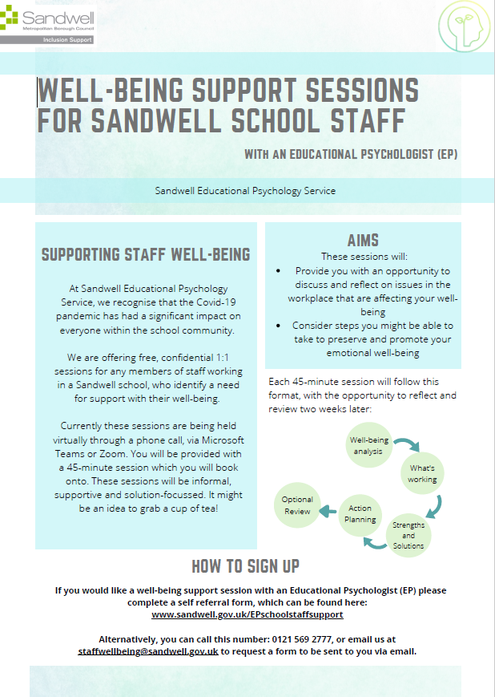
Staff Support
